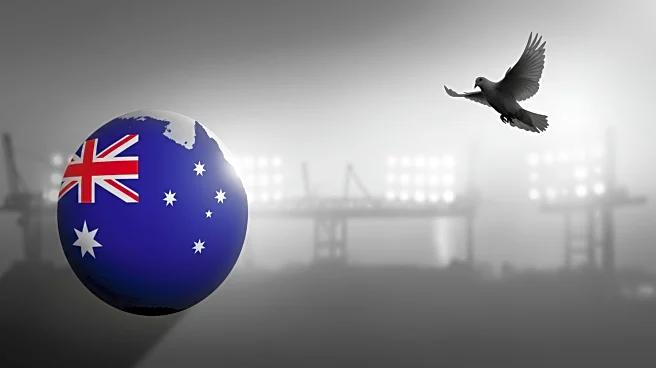What's Happening?
Australia has announced its intention to recognize Palestinian statehood during the upcoming United Nations General Assembly session in September. This decision aligns with similar moves by France, Britain, and Canada, increasing international pressure on Israel to negotiate an end to the ongoing conflict in Gaza. Prime Minister Anthony Albanese stated that the recognition is part of a coordinated global effort to support a two-state solution. The announcement follows significant protests in Australia, where approximately 100,000 people demonstrated against the war in Gaza. Foreign Minister Penny Wong emphasized the urgency of the situation, warning that there might be no Palestine left to recognize if global action is not taken.
Why It's Important?
Australia's decision to recognize Palestinian statehood is significant as it adds to the growing international pressure on Israel to address the humanitarian crisis in Gaza. This move could influence other countries to follow suit, potentially shifting the dynamics of Middle Eastern diplomacy. The recognition by major Western powers like France, Britain, and Canada, along with Australia, could lead to increased diplomatic isolation for Israel if it does not engage in peace negotiations. The decision also reflects global concerns over the humanitarian situation in Gaza, which has been described as catastrophic, with widespread starvation.
What's Next?
Australia's recognition of Palestinian statehood is expected to be formalized at the United Nations General Assembly session in September. This could lead to further diplomatic discussions and potential resolutions aimed at addressing the conflict in Gaza. The international community may continue to exert pressure on Israel to engage in peace talks, and other countries might consider similar recognition of Palestinian statehood. The situation in Gaza remains critical, and the global response could shape future diplomatic and humanitarian efforts in the region.









